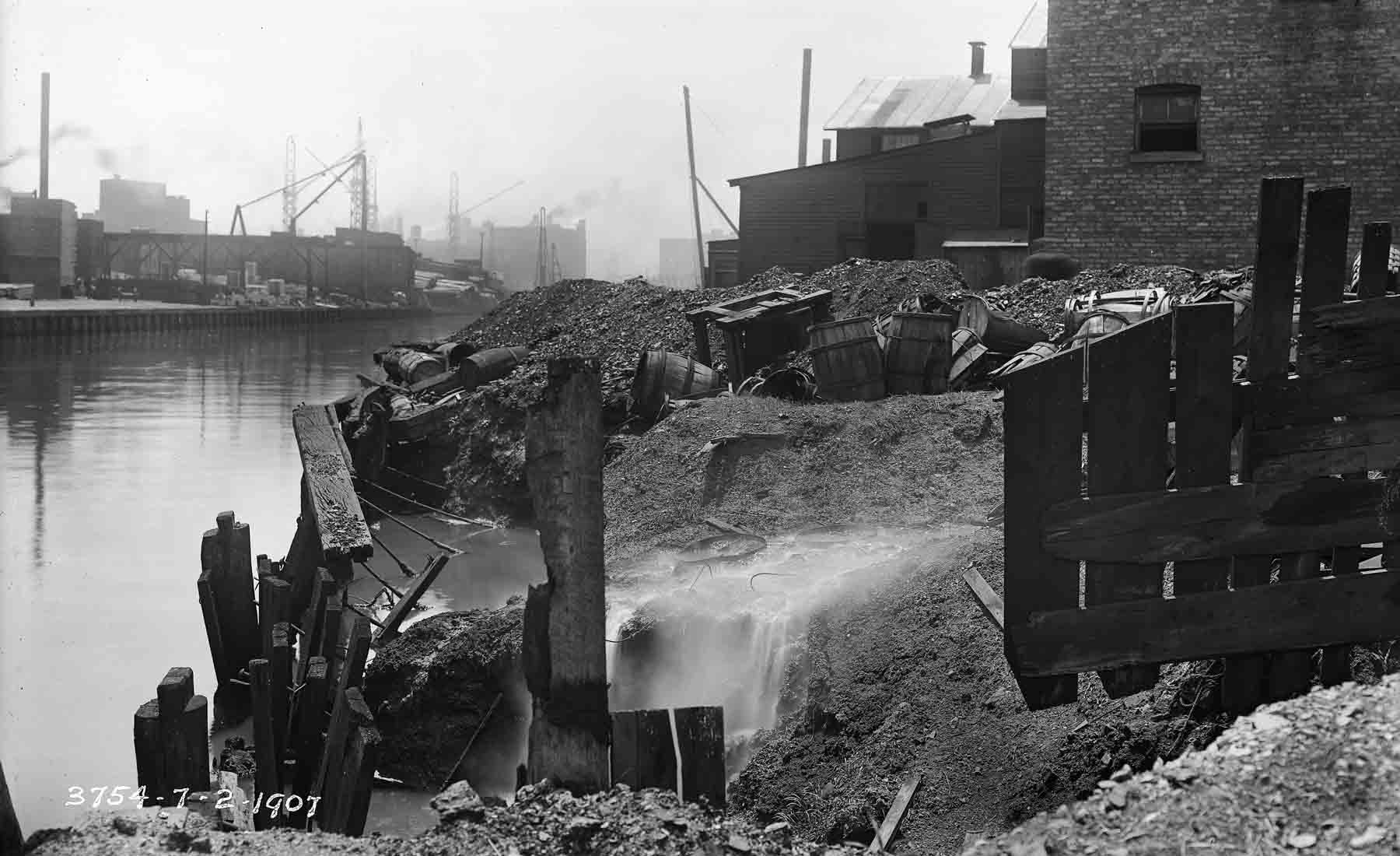
Sometimes I try to imagine what Chicago in the 1880s must have been like -- the city center had been rebuilt after the Great Fire but there was no sewage treatment, no water filtration to make lake water safe to drink, the river was the prime dump site for all manner of human, animal and industrial waste. Fish could not survive in much of the river because the organic matter had sucked out all the oxygen. It was a fetid swamp of contamination. On hot summer days, the stench must have been unbearable.

Even as Chicago was planning the Columbian Exposition of 1893, sponsors worried that people might get sick from water-borne diseases like cholera and typhoid because Chicago did not then have a safe, secure source of drinking water. The Bureau of Public Comfort had to assure visitors that water in the drinking fountains was filtered or sterilized.
Chicago could never become a world-class city if people living in the city got sick from the water. And as long as the sewage-laden river flowed into Lake Michigan, Chicago's drinking water was a prime threat to public health. There were three possible solutions: discharge of sewage into Lake Michigan farther from the water intake pipes, disposal of sewage on land, and discharge of sewage into the Des Plaines River.
Should we be surprised that the city's leaders selected the cheapest option -- to dig a canal, reverse the river, and flush Chicago's sewage downstream? January 17 will mark 112 years since the Chicago River was reversed, flowing through the Sanitary & Ship Canal to join the Des Plaines near Lockport.
No question the system of man-made canals, 78 miles known as the Chicago Area Waterways were a magnificent engineering feat and, I submit, allowed Chicago to become a great metropolis. Yet today we are grappling with some of the unintended -- and unanticipated -- consequences of our technological expertise and our hubris.
In digging the Sanitary & Ship Canal, we broke through the eastern subcontinental divide that separated the Lake Michigan watershed from the Mississippi, so that today we are spending millions of dollars trying to stop Asian carp from reaching the Great Lakes where it is feared they will decimate the sport and commercial fishery. And these carp are merely the latest in a line of invasive species moving in both directions through the canal, what's been called a "highway for environmental havoc."
Mind you, when the canal system was built, we didn't know what ecosystems were, there was no Environmental Protection Agency, no requirement to conduct an environmental impact assessment. People were doing the best they could at the time.
But now we know more and, when we think about sustainability, I suggest that the first commandment is that we must be humble. Many people speak of the triple bottom line, that an enterprise is not sustainable unless it accounts for ecological and social impacts as well as economic ones. But some argue that even that equation is wrong. People, planet, and profit aren't three equal parts. Instead, Larry Washington of the Shelton Group says, environment is the foundation that business and community build upon.
"The environment is THE critical component of business, social responsibility and humanity itself," Washington says. "It cannot be separated from the things that it supports, no matter how satisfying the thought. Businesses can fully function without social efforts (and vice versa), but neither can function without the environment. So how can we separate out the environment when it's an embedded part of the other two legs [of the stool]? We can't. Our planet isn't "just as important" as profit or people -- it's more important. It's the foundation of all we have, and we'll be fighting the same uphill environmental battle until we can give it its proper due."
Reversing the Chicago River spurred Chicago's rise. More modern techniques of sewage treatment weren't invented until the 1920s, so for 30 years Chicagoans would still have had to contend with a river as a sewer. Today we can ponder what our region might have been like had we not exercised our audacity by reversing the river. It's a puzzle we're grappling with now as we contemplate carp, climate change, and a livable city for the 21st century.